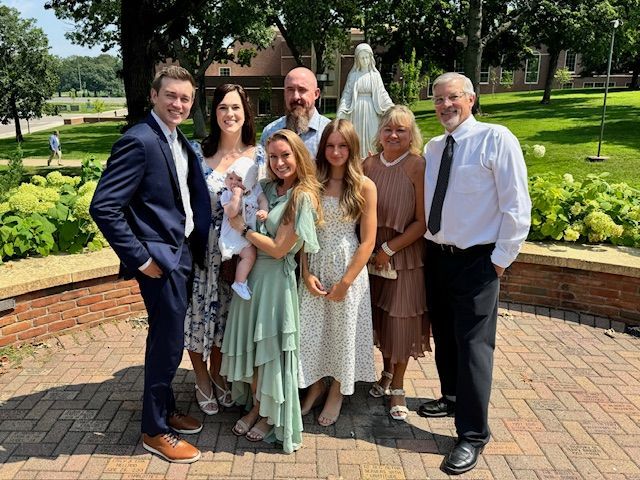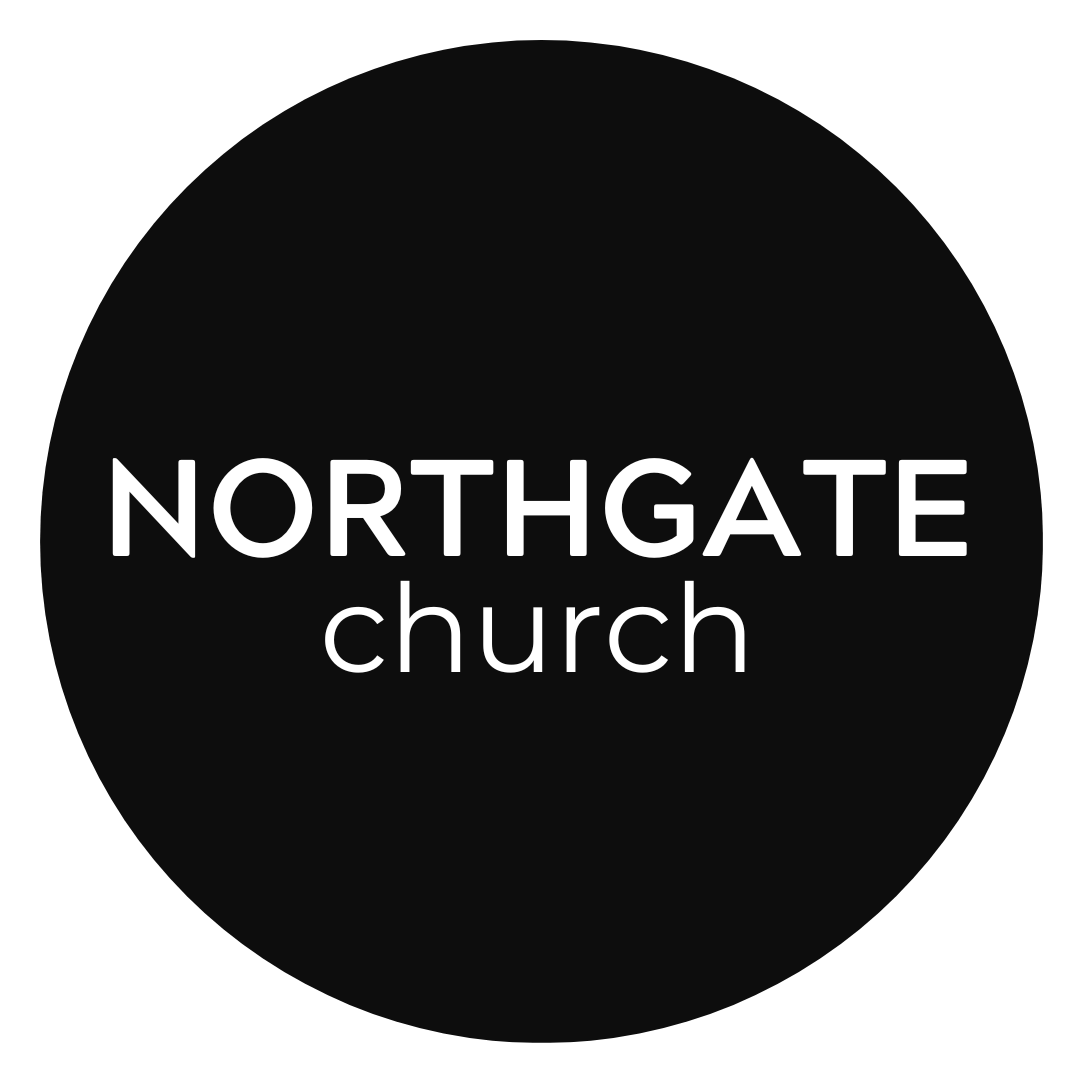READY & WAITING: WEEK 3 DEVOTIONS
DAY 1
“Therefore, with minds that are alert and fully sober, set your hope on the grace to be
brought to you when Jesus Christ is revealed at His coming.” 1 Peter 1:13
What we think about matters. How we think about what we think about matters just as much. The state of our minds is linked to our hope.
I think we often associate hope with a feeling. We feel good, positive, and upbeat. We have a good outlook on life because things are going well, we enjoy the people in our lives, and the future looks bright.
But we know life has its ups and downs. In the blink of an eye, everything can change. The future is suddenly uncertain, and we wonder, is there a light at the end of the tunnel?
For thousands of years, God’s people proclaimed the coming Messiah. They were mocked, scorned, ridiculed, and even put to death because they spoke what was true. For thousands of years, God’s people had the opportunity to hope by believing their words were true.
Then, when the timing was just right, Jesus came. God was faithful to do exactly what He said He would do.
Jesus Christ is coming again.
For thousands of years, God’s people have proclaimed the return of Jesus – Savior, Messiah, King of kings and Lord of lords. For thousands of years, God’s people have had the opportunity to hope by believing their words are true; God’s Word is true.
At exactly the right time, Jesus will return. God is and will be faithful to do exactly what He said He will do.
There will be challenges to our hope. We will compare this hope to wealth and physical things the world says are valuable. Our hope is not based on our circumstances or quality of life and while we cannot control how or when our hope will be fulfilled, we can control our response to the trials, tribulations, and troubles that come our way because of this hope.
We will be tempted and even encouraged by the world to reject, deny, and turn away from this hope, so we need to be intentional about focusing on and remembering where our hope truly comes from and in whom we trust and believe.
This is not about doing good or being good. It’s not about being wealthy or poor. It’s not about never being afraid or having all the right words. This is about believing and having hope in the One who is good, who faced all our fears, and has given us His perfect Word.
Jesus is the light that gives hope. His hope is guaranteed and does not disappoint.
DAY 2
“For our struggle is not against flesh and blood, but against the rulers, against the authorities, against the powers of this dark world and against the spiritual forces of evil in the heavenly realms.” Ephesians 6:12
I remember the date, where I was, what I was doing, and who I was talking to when I realized – a full light bulb moment – the devil was real.
He is not some fictional cartoon character who shows up with a “poof” in a red jumpsuit donning a tail, horns, and a pitchfork. He doesn’t sit on your shoulder arguing with the angel on the other.
No, he exists and like a prowling lion looks for someone to devour.
As Jesus said, Satan is the father of lies and he comes to steal, kill, and destroy. He is our true enemy, and our struggle is against every spiritual ruler, authority, power, and force of evil that joins him in his mission to keep us bound and in the dark.
As we acknowledge God, we can ask Him for minds that are alert and open to His truth. God gives wisdom to the wise and knowledge to the discerning. He will give us spiritual eyes to see, spiritual ears to hear, and spiritual hearts to understand so we can recognize the devil’s schemes and the real battle before us.
In Christ, this is not a battle we need to fear. Jesus came that we may have life and have it to the full. He gives us the weapons not of this world, but of His kingdom.
As we put on Christ from head to toe and keep His truth at the forefront of our minds: His righteousness and gospel of peace, His message of reconciliation, restoration, and redemption, we will be able to recognize every lie the enemy throws at us and every pretense he sets up against us.
There may be days, many days when it feels like the devil is taking ground in our lives, families, communities and across the world, but Satan is a defeated foe; he knows his time is short.
We can have confidence knowing Jesus has already won the war.
DAY 3
“The fear of the Lord is the beginning of knowledge, but fools despise wisdom and instruction.” Proverbs 1:7
You’ve heard it said, ignorance is bliss, but God’s Word says in Christ we no longer live in ignorance.
True knowledge begins when we trust God and His Son, Jesus Christ. Knowledge of Him and from Him leads to understanding, discernment, and wisdom.
James distinguishes between two types of wisdom: earthly wisdom and heavenly wisdom.
Earthly wisdom leads to envy and selfish ambition, disorder, and every evil practice. Heavenly wisdom is pure, peace-loving, considerate, submissive, full of mercy and good fruit, impartial and sincere. It leads to peace and every good and right practice.
When we look at the words used to describe the two types of wisdom, it seems obvious which traits or actions would, or should come from God and which would come from the world, or not come from God. But our understanding of these words needs to go deeper than the initial thought we have about them.
When people don’t know the truth, their emotions and feelings along with every voice they hear has a say in what they think. A world that doesn’t know God lives in ignorance. Truth becomes relevant and subjective to a person’s experience and understanding rather than God’s truth shaping and informing their understanding of their experiences.
The fool dismisses God and despises His wisdom and instruction. They don’t want anyone telling them what to do, including God. Following their own desires, they are wise in their own eyes.
But that is not our way when we become the children of God. The one in Christ who is wise, alert and clear in thinking seeks God’s guidance in order to walk with Him and others in a manner that is prudent, right, just, and fair. They have a teachable spirit, a desire to know so they can do. We live in agreement with the knowledge of God and must be open to receiving His understanding, discernment, and wisdom as we do.
We want to know what’s true because we are always putting our thoughts, what we know, into practice. What we think and know will lead to what we say and do.
DAY 4
“This is the message we have heard from him and declare to you: God is light; in him there is no darkness at all.”
1 John 1:5
It’s not unusually that children are afraid of the dark. They can’t see clearly and are uncertain about what may change. They know what they saw before the light went out, but what happened after? What’s making that noise? Who’s really in the room? Is there anything in the closet or under the bed?
It’s interesting that as we grow older, we become more afraid of the light than we are of the dark.
We allow the dark to become our friend as we try to protect ourselves by keeping things hidden, tucked in that closest or shoved under the bed. Make believe is a child’s game and yet at times, we as adults work really hard pretending to be something we’re not. We try to convince ourselves and others that we have it all together, and of course, would never do THAT (whatever that is).
But John declares in his joy that God is light. In Him there is no darkness at all.
None.
The light of Jesus not only exposes what’s really in the closet or under the bed, it exposes the truth of what’s in our own hearts: our fears, wounds, motivations, desires, and sin.
Everything.
And while that can be quite scary, living in the light of Christ’s love is the safest place we will ever be. Jesus has come to set us free from sin and our fears. He has come to heal our wounds and satisfy every good desire of our heart. He becomes our motivation for all we do.
No more hiding. No more pretending. Honestly exposed so we are free to live fully seen and known, loved and accepted, walking confidently in the light of Jesus.
DAY 5
“‘Who has known the mind of the Lord so as to instruct him?’ But we have the mind of Christ.”
1 Corinthians 2:16
There is a way we understand the world and all things in it to work. We are taught to use our five senses. You look to science and what you can discover through trials and tests. The tangible is real … or at least it used to be. You can’t even trust those today according to some.
But there is another way to know what it real: the Spirit of God. He Himself teaches us and reveals God and the mystery of Jesus to us. Before Jesus was crucified, He told His disciples it would be better for Him to go away because when He did, God would send another, the Advocate, in place of Jesus.
Jesus was fully God and fully human, and as human He could only be in one place at a time. He sent His followers out and they were able to perform miracles casting out demons and healing every disease and sickness, but they still didn’t understand. They had learned and memorized Torah and yet still did not understand. They believed Jesus to be the Messiah and yet they still did not understand. Not fully.
But then came Pentecost and the outpouring of the Holy Spirit on the disciples in the upper room. They spoke clearly about all that had happened. They proclaimed the good news of Jesus and 3,000 people came to believe.
My spirit knows my thoughts, but my spirit is with me only. Other than God, no one else can know what I know or think without hearing it from me. They can make assumptions, but not truly know. In the same way, the Spirit of God knows God’s thoughts. When we accept Jesus as Lord and Savior, the Spirit of God dwells within us and can instruct us in all of God’s ways.
And just like our five senses and science and all the rest, we can choose to ignore what we see and hear from God. Or we can pay attention to the promptings, to the lessons He’s teaching us, to the people and places and situations He’s showing us. We can know how God wants to be known.
God’s Word is not too hard to understand. Not when we have the mind of Christ living inside us.











